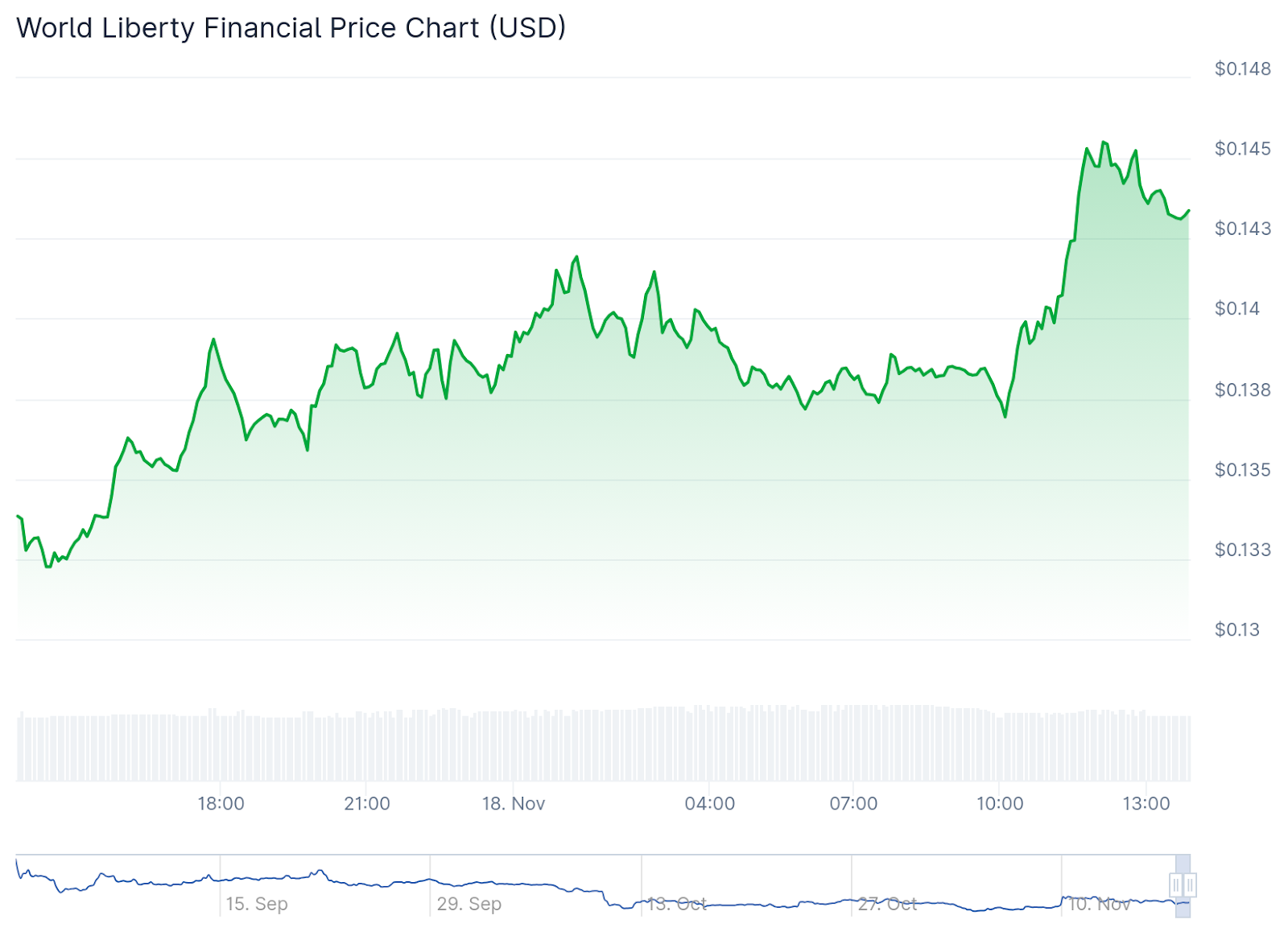World Liberty Financial is under new scrutiny after U.S. Senators Elizabeth Warren and Jack Reed urged the Department of Justice (DOJ) and the Treasury Department to investigate potential links between the project and sanctioned actors, including North Koreas Lazarus Group, according to a report.
What prompted the request
The senators allege that in January, about $10,000 worth of WLFI tokens were sold to traders who previously interacted with a wallet now sanctioned for ties to the Lazarus Group. They also flagged concerns about exposure to Russian-linked actors. Sanctions are designed to block U.S. persons from aiding blacklisted entities, even indirectly.
The project has been publicly associated with members of the Trump family, drawing added political attention. The senators letter asks DOJ and Treasury to probe whether the token sale or related activity violated U.S. sanctions or anti-money-laundering rules.
The scale in context
- WLFI fundraising: $550 million
- Questioned amount: $10,000 (about 0.0018% of the raise)
- Source for the 0.0018% figure: on-chain analyst ZachXBT
While the dollar amount is small, even limited contact with sanctioned wallets can trigger compliance reviews. Thats why regulators pay attention to provenance, not just size.
Price didnt flinch
Despite the headlines, WLFI traded higher, up roughly 7% on the day at the time of writing.

Why regulators care
The Lazarus Group has been blamed by global authorities for a series of crypto hacks. The U.S. Treasurys Office of Foreign Assets Control (OFAC) maintains a list of sanctioned addresses. If a projects tokens are knowingly sold to or routed through those addresses, it can raise legal risk for issuers, exchanges, and liquidity providers.
Regulators also look at on-chain evidenceransaction histories recorded on public blockchains. Even if funds pass through multiple wallets, forensic tools can sometimes trace them back to a flagged source.
About WLFI and USD1
World Liberty Financial launched its WLFI token in September. The project also issues USD1, a U.S. dollar-pegged stablecoin. Stablecoins aim to hold a steady value of $1 by backing each token with reserves.
USD1 has quickly grown to become the seventh-largest stablecoin in Decentralized Finance (DeFi), with a circulating market value of about $2.8 billion. DeFi refers to financial services run by software rather than banks.
Politics and prior criticism
Senator Warren has long pressed for tougher crypto oversight, often arguing the sector enables scams and sanctions evasion. She has also criticized the GENIUS bill, calling it a grift. That background helps explain why even small red flags can become major flashpoints in Washington.
What could happen next
- Information request: DOJ and Treasury could seek internal data from exchanges, market makers, and the project.
- No action or guidance: Agencies might find no violation but issue guidance on screening sanctioned wallets.
- Enforcement: If wrongdoing is found, remedies could include penalties or restrictions. Secondary effects could include exchange delistings or tighter listing standards.
How tracing works, in plain English
Think of blockchain as a public ledger. Every transfer leaves a trail. Investigators use analytics to see if a wallet received funds that once touched a blocked address. Even if money takes a long route, the chain of custody can still be visible.
Why this matters for everyday users
- Compliance spillover: Tighter controls can make it harder to move tokens through exchanges, even for honest users.
- Project risk: If scrutiny grows, projects may add stricter wallet screening or geofencing, changing how people interact with DeFi apps.
- Market volatility: Headlines around sanctions can spark sharp price moves across related tokens, not just WLFI.
Bottom line
The senators request doesnt prove wrongdoing, but it raises the stakes for World Liberty Financial at a time when U.S. agencies are zeroing in on sanctions compliance in crypto. With WLFI up on the day and USD1 now a major stablecoin, the investigations outcome could shape both the projects future and how DeFi teams screen counterparties going forward.
